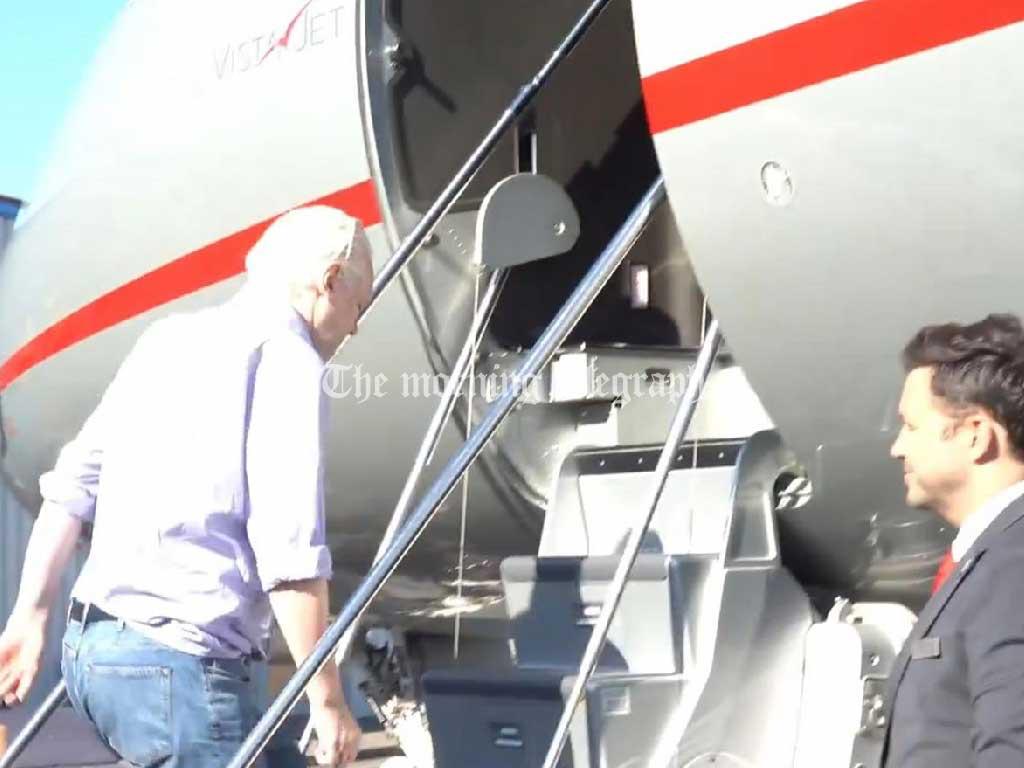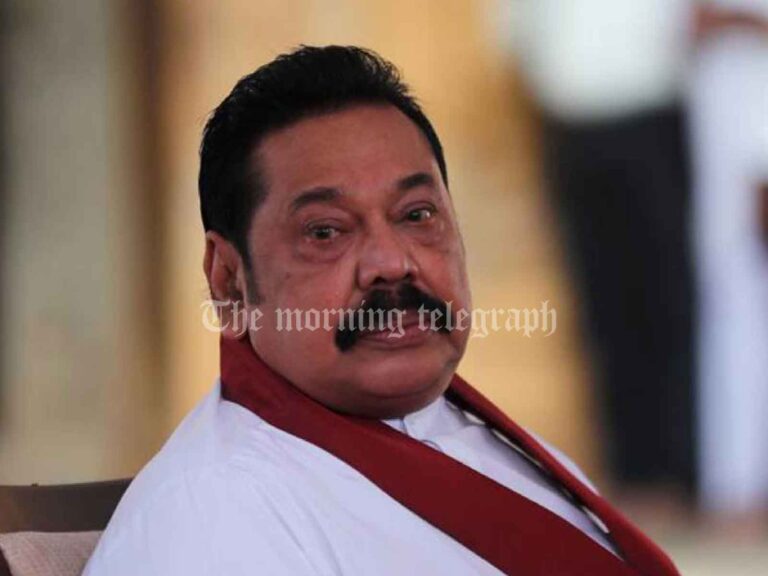
* Assange boarded a flight from London’s Stansted Airport on Monday after being released on bail
WikiLeaks founder Julian Assange was released from a British prison on Monday and is on his way back to Australia after a 12-year battle against extradition to the United States ended in a plea deal.
The 52-year-old Assange, who has spent the past five years in a high-security UK prison and nearly seven years before that in the Ecuadorian embassy in London, agreed to plead guilty to a felony charge related to one of the largest breaches of US government classified materials. His whistleblowing website, WikiLeaks, published nearly half a million secret military documents related to the US wars in Iraq and Afghanistan.
The plea deal, which still needs approval from a federal judge, allows Assange to avoid prison time in the US and return to Australia as a free man. The agreement stipulates a 62-month sentence, equivalent to the time Assange served in the UK while fighting extradition.
Assange boarded a flight from London’s Stansted Airport on Monday after being released on bail, according to a statement from WikiLeaks. “Julian Assange is free,” WikiLeaks announced. “He left Belmarsh maximum security prison on the morning of 24 June, after having spent 1,901 days there.”
A judge will conduct the hearing and sentencing on Wednesday in Saipan, in the Northern Mariana Islands, a US territory in the Pacific closer to Australia. Assange was wanted by US authorities on espionage charges for WikiLeaks’ publication of hundreds of thousands of sensitive military and government documents supplied by former Army intelligence analyst Chelsea Manning in 2010 and 2011.
Assange faced 18 charges and a potential 175-year prison sentence. British authorities had sought assurances from the US that he would not receive the death penalty. WikiLeaks, founded by Assange in 2006, gained global attention in 2010 when it released a video of a deadly 2007 US helicopter attack in Iraq. Subsequent releases included classified US military documents and diplomatic cables.
Assange long argued that the case against him was politically motivated, that he would not face a fair trial, and that his extradition would violate the European Convention on Human Rights. Free speech advocates condemned the extradition attempt, fearing it would have a chilling effect on press freedom.
In 2010, Assange faced sexual assault allegations in Sweden, which he denied, claiming they were part of a smear campaign. After turning himself in to British authorities, he fled to the Ecuadorian embassy in London, where he was granted political asylum. In 2019, Assange was forcibly removed from the embassy by London’s Metropolitan Police on a US extradition warrant and spent the next five years in Belmarsh prison.
Recent pressure to dismiss Assange’s case culminated in May when London’s High Court ruled he had the right to appeal his extradition. US President Joe Biden hinted at a potential deal facilitated by Australian government officials to return Assange to Australia. Human rights organizations, including Amnesty International, called on the UK to halt Assange’s extradition due to concerns over potential abuse and ill-treatment in the US.
Upon his release, Assange’s wife, Stella Assange, expressed gratitude on social media, stating, “Julian is free! Words cannot express our immense gratitude to YOU, yes YOU, who have all mobilized for years and years to make this come true.”
Former Ecuadorian president Lenín Moreno, who revoked Assange’s asylum in 2019, also expressed relief that Assange would not be handed over to the US. Colombian President Gustavo Petro and Mexican President Andrés Manuel López Obrador were among those celebrating Assange’s release, calling it a victory for global press freedom.






